The Roflko Interview: Part 1
When the Skyesports Masters 2023 took place earlier this year, it not only was the country's biggest ever CS:GO tournament but it also brought in different players from various regions across the world, to get together with the Indian players and help grow the scene.
One such player who joined the Skyesports Masters was James 'Roflko' Lytras. Roflko joined Enigma Gaming along with fellow compatriot yourwombat and while Enigma and Roflko failed to make it to the LAN Playoffs, there were plenty of positives for the Australian.
Dust2 India had a conversation with Roflko, speaking to the Australian about his Counter-Strike journey, the OCE scene, playing the India and much more.
Here's the first part of our chat with Roflko.
Talk to us about your childhood, growing up in Australia. Was Counter-Strike/esports a big part of your childhood?
I had a very lucky childhood when it came to gaming. My family was always very supportive of my interests in games in general. They were concerned like most families but as long as I had balance they didn’t mind if I played. CS:GO was introduced to me in early high school when I was about 15 years old (I am now 23 years old) and I fell in love with it instantly! Me and my friends used to go to internet cafes and play LAN tournaments together and play for hours after school.
Did you always want to be a professional CS player? When or what made you realise that you wanted to follow the sport professionally?
I always had a strong interest in gaming ever since I was a young child. I always wanted to be a professional CS:GO player but lacked confidence. I used to watch Titan and fnatic play, players like kennyS and olofmeister back in the day, inspired me to play more and try and see how far I could go. The first time I realised I had a shot at going pro was when my team qualified for Mountain Dew League and the motivation to be the best I could be, built more and more from there.

Were there any hurdles, obstacles you faced whilst pursuing a career in esports? What was the reaction from your parents?
I was very fortunate with pursuing esports. My family was extremely supportive. I kept studying full time and working so they didn’t mind that I was playing games as well. The biggest hurdle I’d say personally, was missing out on time with friends, family and my girlfriend. It can be hard balancing all these things, but I had overwhelming support from everyone in my life while playing professionally. I am and have been very fortunate.
After more than two years since you started with Team Dislekek, you joined VERTEX, tell us about your VERTEX experiences and playing in the EU?
Playing in the EU was a dream come true. While in Germany we got to scrim the worlds best teams - FaZe, G2, NAVI, Astralis, Vitality and many more. It didn’t feel real being in the same server as these people I’d looked up to my whole career. This will definitely always be one of my most treasured experiences in life.
Obviously there is a vast difference whilst playing in the EU compared to playing from OCE or even SEA - apart from the ping differences, how hard does isolation of the region and limited practice opportunities hurt? Discuss the EU style of play compared to Asian and OCE?
Being in a region where we are cut off from the rest of competition makes it hard to find consistent good practice. That makes it even more important that people take each scrim or night of practice seriously. The teams in EU play with complete focus and understand how each play affects the overall round structure/picture. Their understanding of how to rotate and manipulate information is so high, it makes it extremely hard to read them. They are also just INSANELY sharp, each player feels like they live in a deathmatch server 24/7.
Tell us about the OCE CS scene, what have been some of the major issues according to you that are hampering the scene? (I have heard that there is a distinct lack of orgs willing to put in money into the game)
The OCE CS scene just needs to focus on having efficient and productive practice. Teams need to value the importance of scrims and theory and focus on improving overall not just the short term result of a match. I’m sure the scene will pick up in terms of org involvement now that CS2 has come.
This is the first part of our interview with Roflko, stay tuned for part two.
Also read






